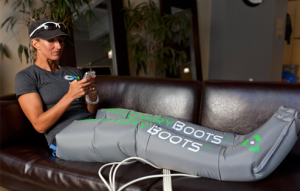Recovery is a particular interest of mine. It is one of my main research areas. We are currently researching different recovery interventions on isometric strength, fatigue and performance. Over the coming months I will discuss different aspects of recovery and some of the methods that can be used. For this post I’ll discuss the importance of recovery!
When it comes to training human knowledge has covered most training methods that technology and equipment can provide us. How we plan and organise training still has some room for improvement but in general there’s not many new training concepts. Recovery has now become a major area of focus as in comparison, it is still a very new area for research. So why is it important? The simple answer is because it makes a difference. In terms of human physiology our body responds to stress and adapts. These adaptations are what improve or conditioning, strength, speed, power and so on. All training is based on the General Adaptation Syndrome (GAS) theory. A stress is applied impacting homeostasis. The body responds to this and resists the stress. It then forces homeostasis past its starting point as a defence mechanism and a new level is set. It is the recovery stage that actual improvement takes place. If you deny yourself this improvement it will eventually lead to overtraining and burnout and certainly kill performance as homeostasis is depressed.
A professional athlete trains full time. He can train all day long without commitments to work or study etc. Often, newly turned full time athletes take the approach of rapidly increasing training volume. They are so used to struggling to fit in training that when they graduate or move into a professional setting they can easily do more. What they soon realise is they plateau. Without proper coaching they can continue on this path for months and even seasons becoming disheartened by poor performance. What they fail to realise is that recovery is just as important as the training. Being full time is what allows them to dedicate time solely on recovery which befits their training level. In many sports there is a finite amount of time to prepare. Looking at the olympics as our example. An olympic athlete may train 5 days a week for 40 weeks of the year. 5 days per week is all he can cope with. Lets say he employs a recovery strategy that takes him from 5 days to 6 days per week. He has just increased his annual training by 40 days. 40 days is an enormous amount of time in terms of competition preparation. Something that may take 15mins post training has just allowed him to train 40 days more than his fellow competitors. When you rationalise it in this way you can see the difference it can make come competition time.

A good athlete will be just as concerned with their recovery as with their training. There are many forms of recovery playing on many physiological responses. I will cover these in other posts and discuss some potential methods and how they work.
